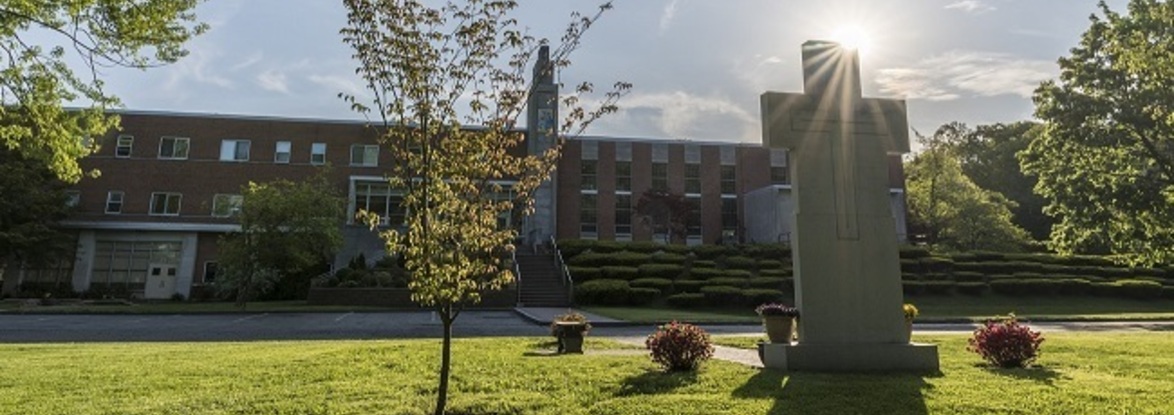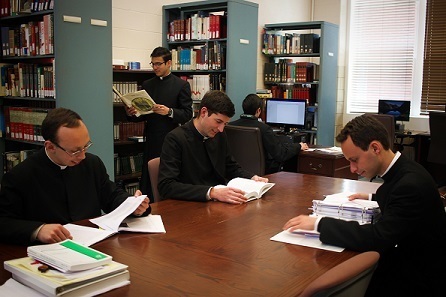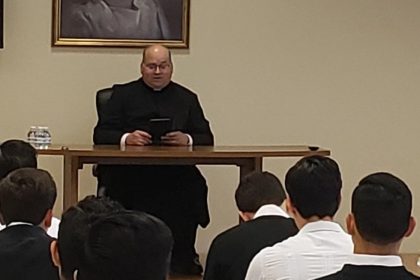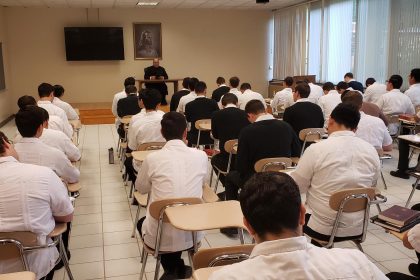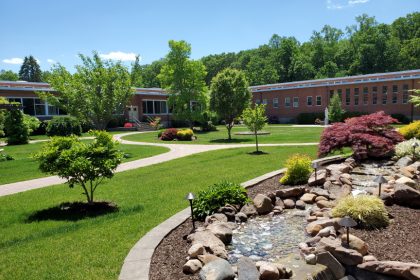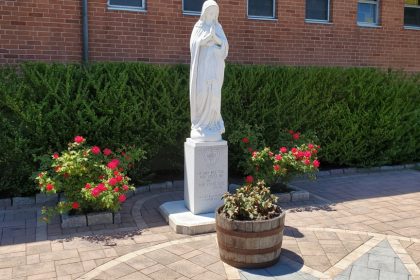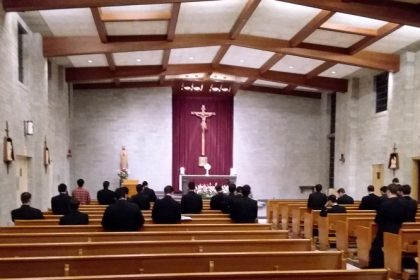Just before Memorial Day Weekend I travelled to Cheshire, CT to the Legion’s Novitiate and College of Humanities. It was my first visit in about seven years. I had originally travelled to Cheshire to start my Legionary adventure on May 30th, 1997, and after a summer candidacy program I entered the Legion of Christ Novitiate on September 14,1997, a two year program where I learned what it meant to be a religious (to live the vows of poverty, chastity, and obedience) as a Legionary in preparation for making my first vows (which I did on September 4th, 1999).
Since June of 2020 I have served the Legionaries of the North American Territory (consisting of the United States, Canada, and some Legionary communities in Asia) as the Territorial Prefect of Studies, overseeing the intellectual formation of all the Legionaries in the territory. Last year the Legion’s General Chapter approved the first revision of our plan of studies since 2001, so at the invitation of the Dean of Studies I came to present the new plan of studies to the brothers and their formation teams in Cheshire.
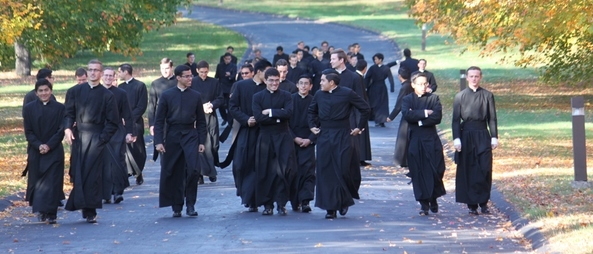
A Legionary before priestly ordination will get an Associate of Arts degree Humanities, a Bachelor’s in Philosophy, and a Bachelor’s in Theology. A Legionary spends a lot of time studying in preparation for evangelizing our culture and navigating a complex world with complex problems. Every stage of this intellectual and academic formation addresses past, present, and future culture in the light of Humanities, human reason, and the light of faith to bring the Gospel to the world more effectively.
The brothers were finishing their final exams for the school year and preparing to transition into summer, so in addition to presenting the new plan of studies the rector invited me to preach the monthly retreat to the Humanists (the Legionaries doing studies in the Humanities and sciences–their first 1 or 2 years as a professed religious). In a talk to the Novices I also told them a little about my years of priestly formation. With the Humanists, some about to move to Rome at the end of the summer to start studying Philosophy, I told them about my experiences in Rome and fielded their questions about life in Rome.
I was surprised how little nostalgia I had when I walked the halls of Cheshire once again. I walked through the halls and grounds, remembering and being reminded, but also seeing how many things had changed in 24 years. The generations of Legionary brothers after me had put their mark on the grounds. The inner garden, a place where I often prayed my rosary and re-discovered my devotion to Mary many years ago, had been re-landscaped and remodeled. It was beautiful, but changed just enough (even the statue of Mary) to not re-evoke those Novitiate years in me.
What I did re-experience fondly at Cheshire was the quiet and the joy of brothers taking their first fledgling steps as Legionaries. I returned to the airport with two Humanists who were about to help out with a camp in LA, and after finishing final exams they were excited about heading out to a new apostolic adventure.
Almost a month to the day I drove to VA on July 1st to visit Divine Mercy University at its new campus. The last time I had briefly visited DMU was in 2008, when it was just the Institute for Psychological Sciences. Now the university offers graduate programs in Psychology and Counseling, as well as a certificate in Spiritual Direction. The rector had invited me to come and sit on a residency for the Spiritual Direction certificate, since for many Legionaries it was a tool for their ongoing intellectual formation and pastoral training, although the program is open to anyone who satisfies certain admission requirements.
The certificate program consists largely of distance courses, but twice a year the students gather for residencies of 3-4 days on site. I attended the residency where they focused on relational skills. Under the supervision of a faculty member the students organized into the roles of spiritual director, directee, and observer. The directee, based on a vignette, “presented” his or her spiritual life so the director could help them explore it and get to know the directee better. The faculty member and observer would then give feedback, and the roles were rotated.
Since the majority of my experience counseling souls has been in the Sacrament of Reconciliation, it was interesting to see the difference in approach when you had more time to direct a soul. Many times I know I have a few minutes in Confession with a soul and may never see them again. Therapists and counselors have developed many skills, especially relational skills, that a spiritual director can also use to help their directees. The students in the role of spiritual director listened and helped their directees explore what was going on inside.
With a drive back this Fourth of July weekend I made it back to Raleigh without too much of a delay due to holiday weekend traffic. Have a blessed Independence Day weekend.

